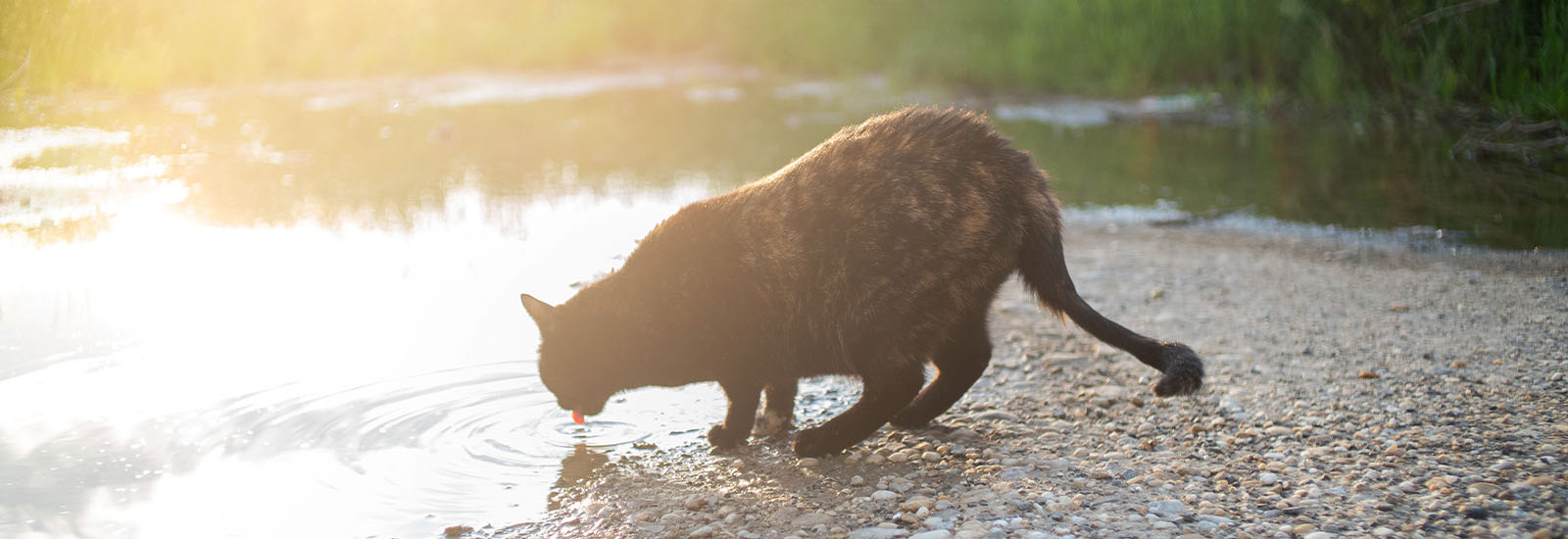Kidney problems in cats
The kidneys cleanse the blood of harmful substances and help to remove nitrogen. If a cat has problems with the kidneys, this should be treated as soon as possible.
Acute kidney failure is a real emergency and must be treated immediately by a veterinarian. The cat produces a reduced amount of urine, usually followed by extreme thirst. They suffer from pain in the stomach and lower spine, and dark urine, sometimes containing blood. Usually their overall well-being is severely impaired and the animals are apathetic and/or no longer eat. This dramatic condition can occur as a result of an accident with high loss of blood, after serious infections, and also after poisoning with heavy metals, antifreeze or medication.
Firstly, emergency veterinary care with infusions and diuretic drugs is essential, followed by treatment of the underlying disease, if necessary with antibiotic therapy lasting several weeks.
Chronic kidney disease in cats
Diseases of the internal organs are not uncommon in cats, especially in older animals. Of particular importance are the organs that are central to the metabolism, such as the kidneys. As the main excretory organ, they are responsible for the daily production of urine. One of the main functions is the formation of concentrated urine. If the kidneys are chronically damaged, they can no longer fully perform their two most important functions, namely urinary concentration and the discharge of substances via the urine. Cats then suffer from a chronic failure of the kidneys (insufficiency). It is one of the most common causes of death in older cats.
![[Translate to English:] Erhöhter Durst kann auf eine Niereninsuffizienz hindeuten.](/fileadmin/media/images/Magazin/katze/02-Katzengesundheit/katze-nierenprobleme/katze-am-wassernapf-magazin-nierenprobleme-contentimage-560x375.jpg)
Symptoms and risks
Since the urine can no longer be concentrated sufficiently, cats urinate more. With cats you have to observe things a little more closely: Larger clumps of litter, several smaller clumps or more frequent visits to the litter tray are the first signs. Cats are usually more thirsty than normal, in other words, they drink more water. The problem with chronic kidney disease is that it is progressive, i.e. the destruction of kidney tissue cannot be stopped. Because the urinary substances, which are toxic in the body of the animal, are no longer excreted, the animal basically poisons itself. In such cases the affected animals are visibly very ill. They are not hungry, they sleep a lot, are prone to vomiting and diarrhoea and lose weight. You should always consult a veterinarian if your pet displays these signs of illness.
![[Translate to English:] Symptome einer Niereninsuffizienz](/fileadmin/media/images/Magazin/katze/02-Katzengesundheit/katze-nierenprobleme/katze-beim-tierarzt-magazin-nierenprobleme-contentimage-560x375.jpg)
Therapy for kidney disease
The therapy for chronic kidney disease can vary, but it always includes the use of a dietary food. A special renal (kidney) diet is essential to reduce the levels of substances in the blood that are excreted via urine. Renal diets contain less protein than found in conventional diets, so that less urea is formed during the protein metabolism. In this way the urea content in the blood can be reduced. In addition, the phosphorus content is also reduced in order to delay the progressive destruction of kidney tissue. With animonda Integra Protect Kidney, a tasty renal diet is available for cats in the form of wet and dry food.
You may also like this
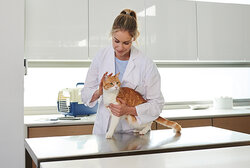
Urinary tract stones in cats
A suitable dietary food can help with urinary tract stones
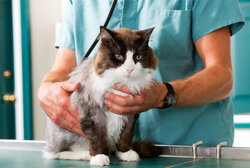
Blood pressure in cats
Measuring blood pressure reveals the efficiency of the heart
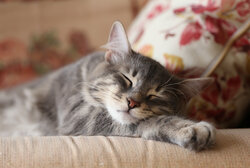
Struvite stones in cats
A special dietary food can help combat struvite stones
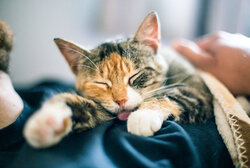
My cat isn’t drinking
Find out if your cat is not drinking enough
